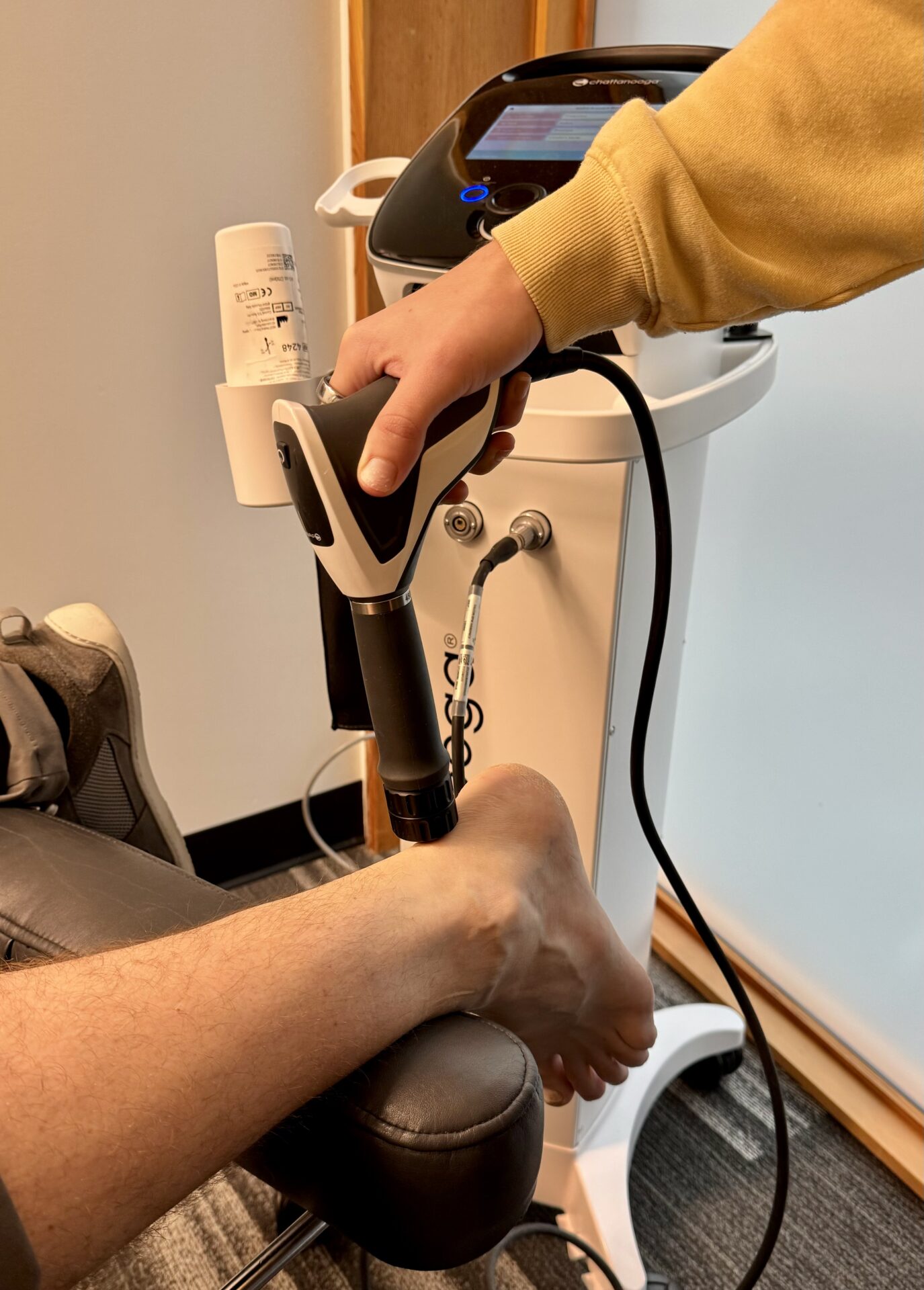
Achilles tendonitis is typically caused by repetitive stress and strain on the Achilles tendon. In this condition, the stress on the tendon exceeds the ability of the body to repair the damage, and thickening and scar tissue result. Some of the most common causes are:
- Overuse and Sudden Increase in Activity: A sudden increase in physical activity, especially high-impact activities like running, jumping, or dancing, can strain the tendon.
- Improper or Worn-Out Footwear: Shoes without proper support or cushioning can increase the load on the Achilles tendon, contributing to inflammation. High heels can also contribute.
- Poor Foot Mechanics: Structural issues like flat feet (overpronation) or high arches can place extra stress on the tendon.
- Tight Calf Muscles: Tight calf muscles and limited ankle flexibility increase strain on the Achilles tendon, particularly during activities that involve running or climbing.
- Aging: The Achilles tendon naturally weakens and loses elasticity with age, making it more prone to injury.
- Inadequate Warm-Up: Insufficient warm-up before exercise or stretching of the calf muscles can increase the risk of Achilles tendonitis.
- Repetitive Stress from Certain Sports: Sports that involve repetitive motions, like running, basketball, or tennis, increase the risk, especially when training intensity or duration is suddenly increased.
Achilles tendonitis can be a difficult condition to treat, especially when it has become chronic. In this condition, the Achilles tendon lays down scar tissue inside of the tendon, often in response to the above mentioned factors. Resolution of the problem can be slow, as treatment has to focus on breaking down the scar tissue in the tendon itself, along with resolving contributing factors.
We have recently acquired one of the most effective and safe treatments for achilles tendonitis, and wanted to share a success story.
BV: 7 years of Achilles pain
BV had 7 years’ duration achilles pain, which was originally caused by a combination of knee and ankle injuries from playing basketball. He had tried other treatments including rest, stretching, ice, anti-inflammatories, and the pain was still present. He was unable to play basketball due to intense achilles pain, and has had stiffness and pain every morning when he woke up for over 5 years. The pain was always present at a mild level, but would spike and become very painful with nearly any sports activity. After treatment 1, he reported no stiffness and pain in the morning. After treatment 2, he noted further improvement, and is looking forward to resolving the pain and beginning his sports activities again.
How does shockwave therapy work?
Originally developed in Germany in the late 1960s for breaking up kidney stones, shockwave therapy has since evolved. Researchers discovered that high-energy and low-energy shockwaves could positively affect soft tissue injuries. The treatment works by sending pulses of energy to the injured area, which can:
- Increase circulation around injured soft tissues.
- Break down calcified deposits.
- Stimulate cells that generate new connective tissue.
- Reduce pain by overstimulating nerve endings.
The Intelect® RPW 2
At Hosmer Chiropractic Health, we are excited to offer the Intelect® RPW 2, a cutting-edge device from Chattanooga that brings the next generation of shockwave therapy into our treatment room. This device utilizes Radial Pressure Wave technology, designed to activate connective tissue from the surface level to difficult-to-reach pathologies. The Intelect® RPW 2 is a powerful modality for addressing pain and inflammation in orthopedic conditions, making it an excellent choice for our patients.
Benefits of shockwave therapy
- Non-invasive: You can continue your daily activities while receiving treatment, avoiding the lengthy recovery time of surgery.
- Faster recovery: Shockwave therapy stimulates healing, helping you return to work or sports more quickly.
- Pain relief: Many patients experience significant pain relief after just a few sessions.
- Avoids medications: It offers a potential alternative to steroid injections and long-term pain medications.
Generally, side effects are minimal. The procedure may cause mild discomfort, similar to an ultrasound, and you might notice slight bruising or odd sensations at the treatment site. More severe side effects are rare but should be reported to your doctor.
Is shockwave therapy for you?
Shockwave therapy for pain relief is an effective option for those suffering from chronic pain and musculoskeletal injuries. If you’re looking for a non-invasive treatment that is often covered by insurance, consider reaching out to us. Contact us to determine if shockwave therapy with the Intelect® RPW 2 is the right choice for your specific needs.